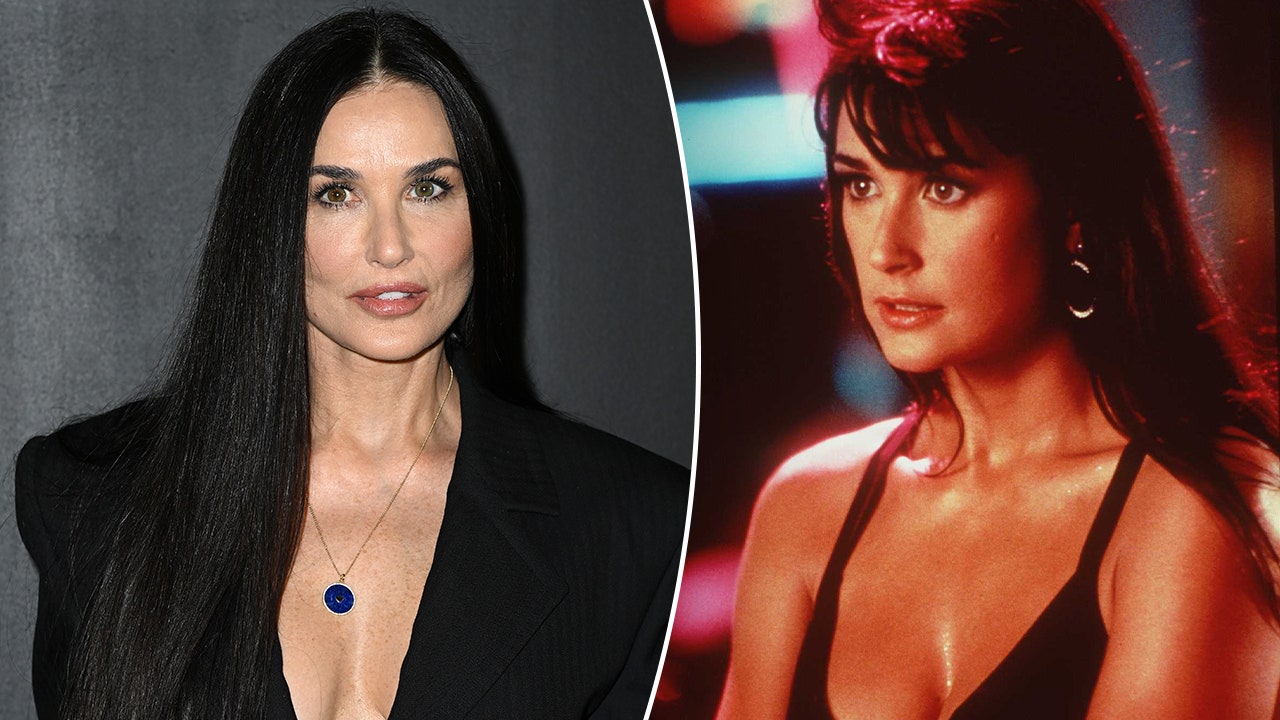Demi Moore Reflects on the Backlash of ‘Striptease’
In a recent candid interview, Demi Moore opened up about the intense backlash she faced for her daring role in the 1996 film Striptease. The film, which showcased her as a single mother who becomes a stripper to support her child, ignited a firestorm of criticism, not just for its content but also for how it portrayed female bodies. Moore’s reflections reveal a profound commentary on the societal pressures of body image and the ongoing struggle against body shaming, particularly in Hollywood.
The Context of ‘Striptease’
When Striptease was released, it was met with mixed reviews and significant controversy. The film’s premise led to discussions surrounding the objectification of women, the ethics of stripping, and the complexities of female empowerment. For Moore, taking on this role was a calculated risk—one that she believed could challenge societal norms surrounding women’s bodies and sexuality.
“I wanted to take a stand,” Moore explained during her interview. “It wasn’t just about the nudity or the stripping; it was about owning one’s body and choices. But the backlash was intense, and it hurt.” This backlash highlighted a significant issue: the harsh scrutiny women face regarding their bodies and choices, especially in the entertainment industry.
The Backlash: A Closer Look
- Media Scrutiny: Moore faced relentless criticism from the media, who focused heavily on her physical appearance rather than her acting skills or the film’s message.
- Body Shaming: The film’s promotional posters and scenes led to public discussions that often turned into harsh judgments about her body, reflecting a broader societal tendency to body shame women.
- Impact on Career: The role had lasting implications for Moore’s career, as she noted that the criticism left her feeling vulnerable and questioned her worth as an actress.
Despite the backlash, Moore views her decision to star in Striptease as a pivotal moment in her career. She argues that the film opened up conversations about female empowerment, prompting women to reclaim their narratives. “I think it’s important to talk about the power dynamics in our industry,” she said. “Women are often put in boxes and judged for stepping outside of them.”
The Societal Pressures of Body Image
Moore’s experience underscores a larger societal issue: the unrealistic standards of beauty imposed on women. In Hollywood, these standards can be particularly harsh, dictating not just how actresses should look but also how they should behave. The scrutiny that accompanies these expectations can lead to detrimental effects on mental health and self-image.
“It’s a constant battle,” Moore reflected. “I’ve seen so many talented women struggle with their self-worth because of the industry’s demands.” This sentiment resonates with many, as studies have shown that media portrayals can significantly impact women’s self-esteem and body image.
Embracing Self-Acceptance
One of the critical messages Moore wants to convey is the importance of self-acceptance. In a world where body shaming is rampant, she advocates for embracing one’s body, regardless of societal expectations. “We need to celebrate diversity in body shapes and sizes,” she emphasized. “Every body is worthy of love and respect.”
Moore’s journey toward self-acceptance has not been easy. She has faced her own struggles with body image, especially during her early career. However, through her experiences and the lessons learned from them, she has come to understand that self-love is paramount. “It’s about finding strength in vulnerability,” she said. “I want to encourage others to find their power in their authenticity.”
Advocating for Change in Hollywood
Moore’s reflections on Striptease also touch on her desire to see change within Hollywood. She believes that the industry needs to move beyond perpetuating narrow beauty standards and start embracing a broader range of body types and stories. “There’s a shift happening, but it needs to happen faster,” she stated. “We have to create spaces where all women feel represented and valued.”
Hollywood has made strides in recent years, with more films featuring diverse casts and stories that challenge traditional narratives. However, the fight against body shaming remains ongoing. Moore’s voice adds to the chorus calling for authenticity and representation, aiming to inspire future generations of actresses.
Conclusion: A Bold Stand Against Body Shaming
Demi Moore’s reflections on the backlash from Striptease serve as a powerful reminder of the societal pressures surrounding body image and the importance of self-acceptance. Her willingness to address the criticism head-on not only sheds light on her personal journey but also highlights a broader cultural conversation about body positivity in Hollywood.
As Moore advocates for change and embraces her own story, she inspires countless others to take a stand against body shaming and to celebrate their individuality. In a world that often demands conformity, her message of empowerment and authenticity is more relevant than ever. “We all deserve to feel beautiful and accepted, just as we are,” she concluded, leaving a lasting impact on her audience.
See more The Buzz Live

